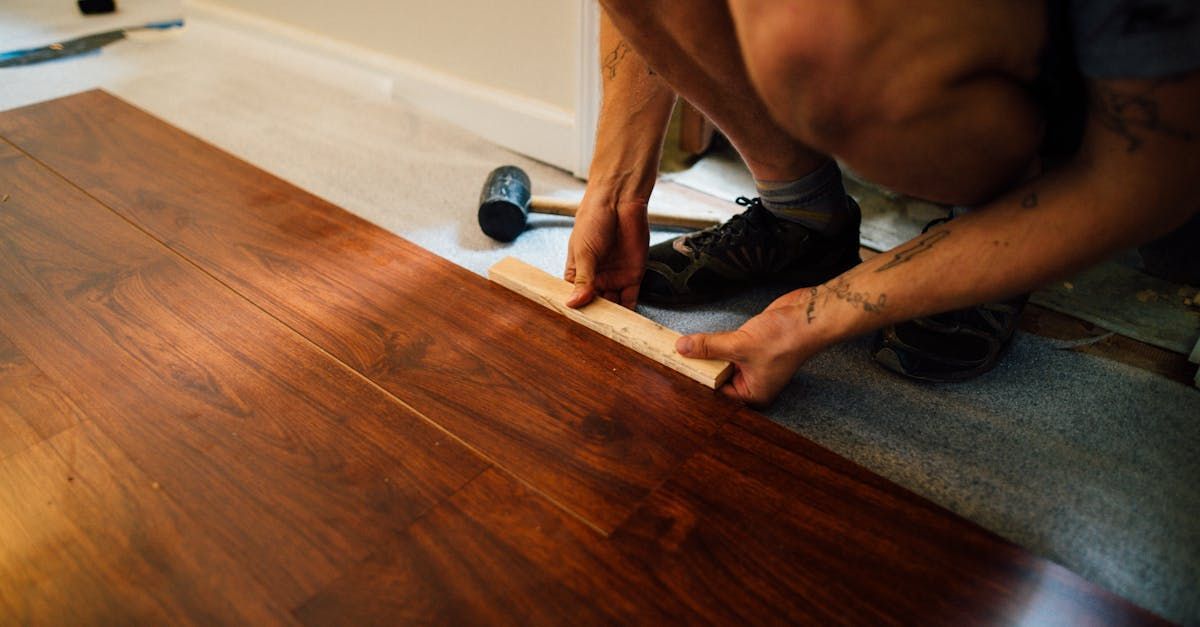FAQs
Flooring Q&A
Get to know how we operate
-
Explore your options
Explore your flooring situation, options, and suggestions.
When considering a flooring installation, homeowners frequently have a number of questions as they go through the process of selecting materials, calculating expenses, and preparing for the installation. Here are some frequently asked questions (FAQs) from homeowners about flooring installation.
-
What Type Of Flooring Is Recommended?
What types of flooring are available, and how can I choose the best one?
Homeowners can select from a wide range of flooring options, including hardwood, laminate, vinyl, tile, carpet, and more. Each type has its own set of benefits and is appropriate for different regions of the home. For example, while hardwood is sturdy and adds value to a property, it is vulnerable to dampness, making it unsuitable for bathrooms. Laminate provides the look of hardwood at a lesser cost and is more scratch-resistant, but it may not last as long. Vinyl is extremely durable, waterproof, and comes in a wide range of styles, making it ideal for kitchen and bathroom flooring. Tile is also durable and water-resistant, making it suitable for high-moisture areas, whereas carpet provides comfort and insulation and is best suited to bedrooms and living spaces. The choice of flooring is frequently influenced by considerations such as price, lifestyle, and the space's special requirements.
-
How long does the installation process take?
The installation time varies depending on the type of flooring, the size of the area, and the complexity of your specific floor project idea. For example, installing hardwood or tile flooring can take several days to a week since these materials sometimes require precise cutting and time for adhesives or finishes to set. Laminate or vinyl flooring, on the other hand, can often be placed in a matter of days or even hours. It's also vital to factor in any necessary preparation work, such as removing old flooring, leveling the subfloor, or allowing time for materials like hardwood to acclimate, which can extend the timeframe. A professional installer can provide a more accurate estimate based on the details of the project.
-
. Should I prepare my home before installation?
Yes, homeowners must take numerous actions to prepare their houses before the installation personnel arrives. First, clear out all furniture and personal objects from the area where the new flooring will be laid. It's also vital to clear a path to the installation place so that the workers and materials can get there easily. If the flooring, such as hardwood, requires acclimation, it should be delivered and stored in the home for a few days before installation to allow for temperature and humidity adjustments. Furthermore, depending on the type of flooring being installed, our team may need to remove baseboards, trim, or, in rare circumstances, old flooring. A clean and well-prepared workspace promotes a seamless installation process. Our flooring team can handle all of those things for you.
-
How much does flooring installation cost?
The cost of flooring installation is determined by various factors, including the type of flooring, the size of the space, the intricacy of the installation, and any other preparation work required. Materials such as hardwood and tile are typically more expensive, both in terms of cost per square foot and installation labor. Vinyl and laminate are frequently less expensive solutions. Carpet prices vary greatly based on quality and style. Homeowners should also consider the price of removing old flooring, leveling the subfloor, and adding finishing touches such as baseboards or transition strips. Obtaining numerous estimates from trustworthy installers and analyzing material costs can help homeowners create an appropriate budget for their project.
-
Should I install flooring myself or hire a professional?
While certain varieties of flooring, such as laminate or vinyl planks, are intended for easy DIY installation, others, such as hardwood or tile, necessitate specific tools and knowledge. DIY installation can save money, but it also increases the potential of costly errors, such as faulty leveling, erroneous cuts, or uneven placement. Professional installers have the necessary skills and equipment to tackle the obstacles of flooring installation, resulting in a high-quality finish. Hiring a professional to preserve your investment is frequently the best option for difficult installations or when using pricey materials.
More useful info can be found on our DYI Page.
-
What happens if my subfloor is damaged or uneven?
A stable, level subfloor is required for a successful flooring installation. If the subfloor is damaged or uneven, it may require repair or replacement before the new flooring can be laid. Common subfloor problems include rot, moisture damage, and structural flaws. In certain circumstances, a simple leveling compound can be used to rectify small flaws, but more substantial repairs may be required for severe damage. Ignoring subfloor concerns might result in difficulties with the new flooring, such as uneven wear, gaps, or buckling, therefore it's critical to repair them before installation.
Careful Preparation and seamless installation of flooring takes time, and exception skill.

Get Started Now
Contact Us
We will get back to you as soon as possible.
Please try again later.
| Powered by Carpe DM Products
